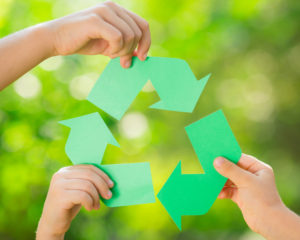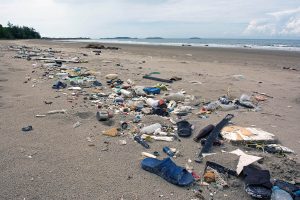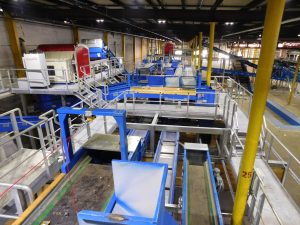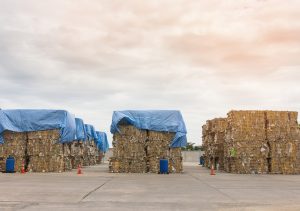
Last year presented an upheaval in the global recovered plastics market, and the impacts continue to roll in. Three experts recently shared their thoughts on the specific causes of the volatility.
 Colin Staub was a reporter and associate editor at Resource Recycling until August 2025.
Colin Staub was a reporter and associate editor at Resource Recycling until August 2025.
Last year presented an upheaval in the global recovered plastics market, and the impacts continue to roll in. Three experts recently shared their thoughts on the specific causes of the volatility.
 Materials diversion was celebrated around the world on Sunday, when the first Global Recycling Day was observed with events in several cities and statements released online.
Materials diversion was celebrated around the world on Sunday, when the first Global Recycling Day was observed with events in several cities and statements released online.

The refillable bottle produced by O-I is offered in two sizes. Photo courtesy of Oregon Beverage Recycling Cooperative.
A glass bottle reuse program in Oregon has taken major steps forward, with glass giant Owens-Illinois creating a standardized refillable bottle for breweries and long-term plans for a wash facility moving forward.
 An industry-funded ocean plastics prevention initiative has received support from a number of new partners, including brand owners, a chemicals giant and an intergovernmental group.
An industry-funded ocean plastics prevention initiative has received support from a number of new partners, including brand owners, a chemicals giant and an intergovernmental group.

Officials in China have announced an enforcement campaign to implement the country’s new import restrictions.
 Industry stakeholders have formed a state recycling organization in Ohio. The group aims to serve as a one-stop shop for business development and support services.
Industry stakeholders have formed a state recycling organization in Ohio. The group aims to serve as a one-stop shop for business development and support services.
 Steel and aluminum imports have been singled out by the White House, and though plenty of questions linger about the development, prices for recyclables could jump in the short term.
Steel and aluminum imports have been singled out by the White House, and though plenty of questions linger about the development, prices for recyclables could jump in the short term.
 Wheels are in motion to resume operations at an idled plastics recycling facility outside Baltimore. But if it does start up again, it will do so without one of its original partners.
Wheels are in motion to resume operations at an idled plastics recycling facility outside Baltimore. But if it does start up again, it will do so without one of its original partners.

Extended producer responsibility rose to the forefront of debate in Connecticut as a strategy to reduce packaging waste in line with state mandates. A committee tasked with advising lawmakers during the coming legislative session recently split on the strategy, but the majority advised against it.

Credit: 1933bkk/Shutterstock
About 85 percent of mixed paper and OCC exported out of California has been bound for China in recent years, and as the Asian behemoth closes its doors to some of those imports, the state’s recycling industry is feeling the hit.
Continue Reading

